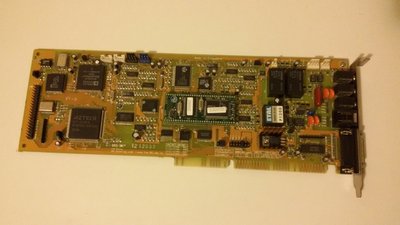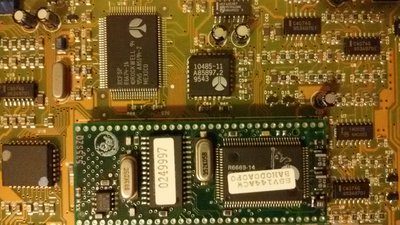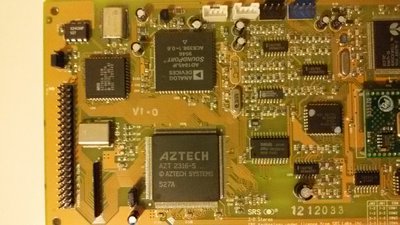First post, by ratfink
- Rank
- Oldbie
I just spent some time boring into my little area of pc archaeology and unearthed three aztech cards, thought I would share the moment. As they are all 16bit isa sb clones I was a bit surprised how they varied:
MMPRO 16 IIA, which was my first sound card. It's got a midi card header, ide cdrom header, some other header labelled expcon, and the big chips are Aztech AZT2316 and Crystal CS4231A-KL. I'm guessing the azt2316 is on opl clone of some kind. Got fond memories of the sound and music from this card, on crappy battery speakers 🤣.
SOUND 16B SRS 3D which is pretty bare and basically seems to just have an AZT2320 OPL and a midi card header. I don't really know what these chips all do, but it doesn't seem to have enough 🤣. The 2320 seems to be an opl3 clone.
SOUND GALAXY WAVERIDER PRO 32-3D (I) PNP. Solder points for a midi card header [but no header], ide header, 3 big chips: Aztech AZT2320 OPL [guess this is the opl3 the box mentions], SEC C731B, and a SAMSUNG KS0174-1MO4 WAVETABLE 😳.[/img]




